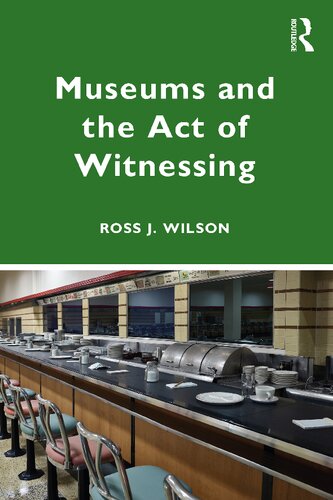

Most ebook files are in PDF format, so you can easily read them using various software such as Foxit Reader or directly on the Google Chrome browser.
Some ebook files are released by publishers in other formats such as .awz, .mobi, .epub, .fb2, etc. You may need to install specific software to read these formats on mobile/PC, such as Calibre.
Please read the tutorial at this link: https://ebookbell.com/faq
We offer FREE conversion to the popular formats you request; however, this may take some time. Therefore, right after payment, please email us, and we will try to provide the service as quickly as possible.
For some exceptional file formats or broken links (if any), please refrain from opening any disputes. Instead, email us first, and we will try to assist within a maximum of 6 hours.
EbookBell Team

5.0
18 reviewsMuseums and the Act of Witnessing examines how representations of traumatic histories and the legacies of the twentieth century in museums and heritage sites across the world shape political, social and cultural identities.
Drawing on an interdisciplinary analysis of a variety of museum exhibitions around the globe, the book demonstrates how the narrative of ‘witnessing’ has shaped representation of war, genocide, repression and violence. Revealing that this form of presentation is inherently Western in its origins and nature, Wilson goes on to argue that witnessing the past is to colonise the future, as we project a certain view of the events of the past onto the present. Detailing the character, content and meanings of representation that focus on the traumatic events of the twentieth century, the book demonstrates the way in which visitors are cast as ‘witnesses’ and questions what the true purpose of witnessing really is.
Museums and the Act of Witnessing draws attention to the fact that we have inherited a distinct, and often limited, mode of seeing the past and considers how we can more effectively engage with the past in the present. The book will be of interest to academics and students engaged in the study of museums, history, sociology, conflict, politics and memory.